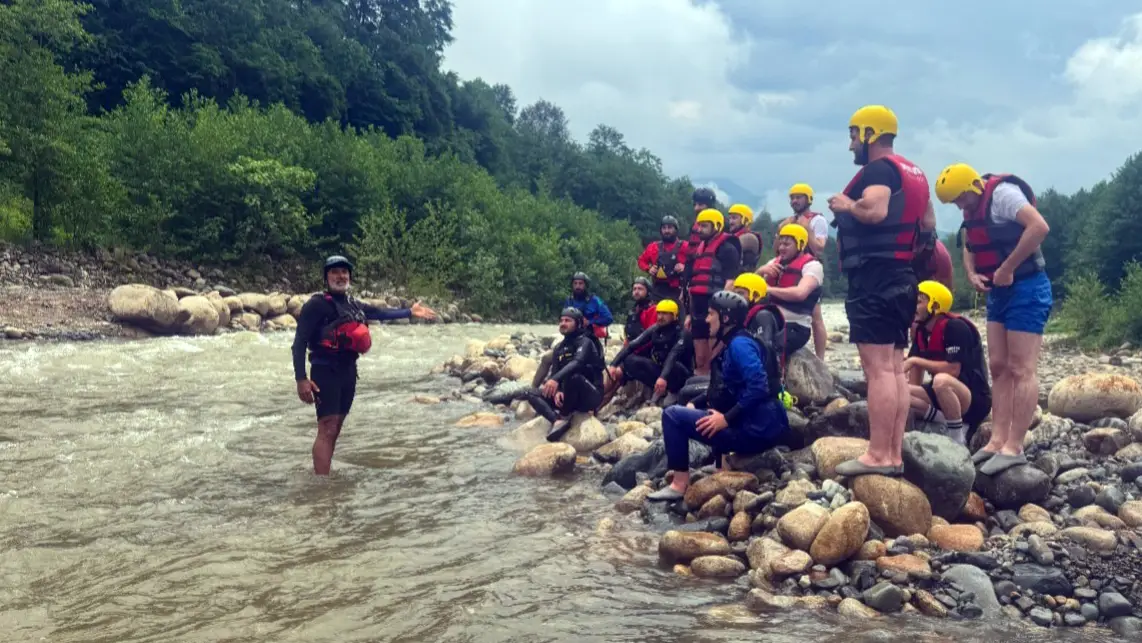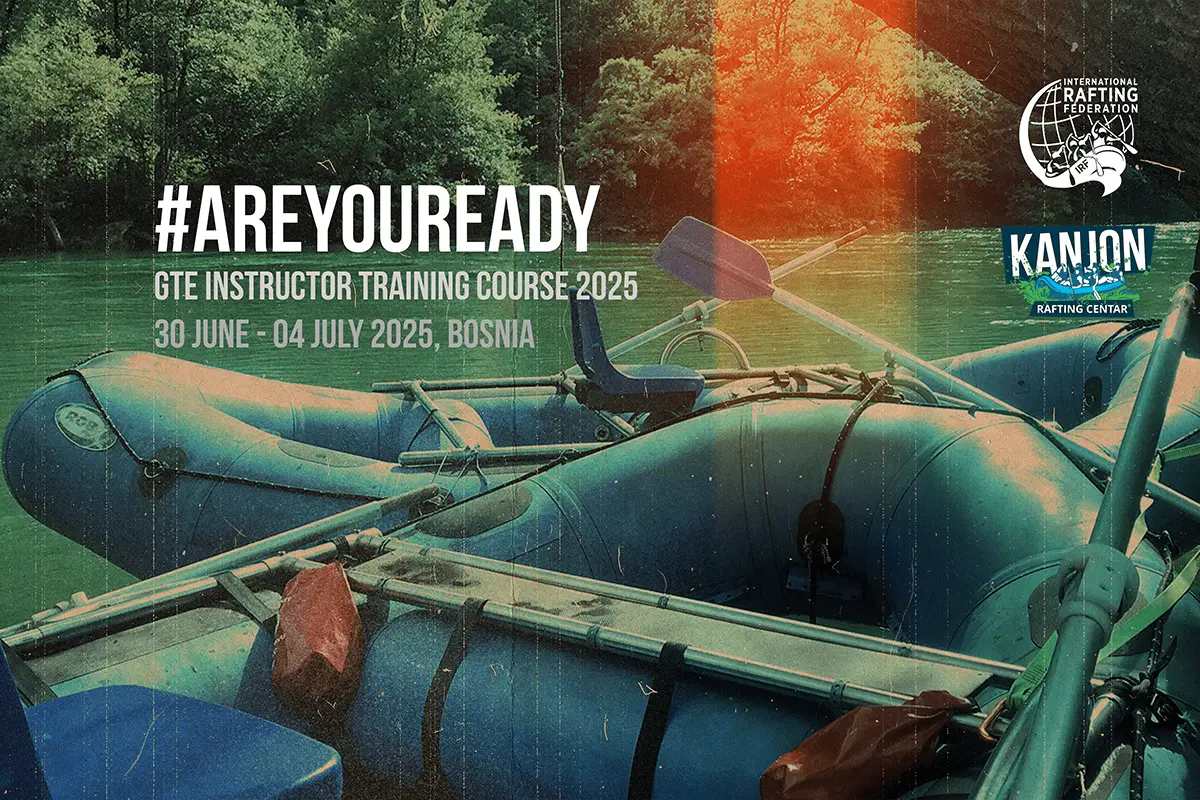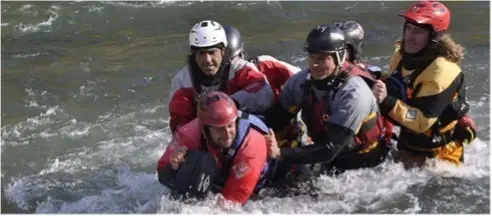Booking a rafting trip with the right company could make or break a great experience.
 In this day and age we are always trying to make our money last a little longer. There are some areas where saving a few extra dollars could cost you lots in the long run. Mark Hirst runs through a few things to help us with this.
In this day and age we are always trying to make our money last a little longer. There are some areas where saving a few extra dollars could cost you lots in the long run. Mark Hirst runs through a few things to help us with this.
“As a raft guide that has travelled and worked around the world, I thought I could share a few moments to give you a heads up and a few handy hints to follow when booking a trip.
The most important questions you should ask yourself are:
- What kind of rafting trip am I looking for?
- Do I want an easy, relaxing trip or more challenging whitewater?
- Does this trip match my expectations?
Pre trip research
When purchasing or booking anything nowadays we research our purchase online beforehand. Booking for a rafting trip should be the same. Websites such as Tripadvisor provide a great place to start your research but let’s all be aware of the happy clappers & trolls when reading through comments.
“Fantastic experience”
Reviewed August 4, 2014
This is a must do when in Queenstown. Professional company with great equipment. Guides are extremely knowledgeable and along with the beautiful surroundings, they point out interesting landmarks as you raft down the river. Chief our guide was both funny and concerned for our safety. My self and my partner had a great time rafting and would recommend it for anyone going to Queenstown.
Visited July 2014
The comment above is brief and to the point. When reading through comments, notes about the ease of booking and pre trip information are big clues as to the quality of the company. Rafting companies that take the time to reply to reviews normally care about the service they offer their customers and are generally good companies.
The company’s own website should be able to give you a clear outline of the quality of their operation. A quick browse through the site will be able to give you a few clear indicators.
For each trip you will need to get at least the following details:
- Classification of the white water on the trip
- Trip distance & time length
- Transport, food & accommodation
- Departure dates
- Cost
Take the time to also have a look in detail at the following finer points.
Guides
Every rafting company proudly boasts to have some of the best guides in the world. This is a bold statement to make; what makes a raft guide the best guide in the world?
A mixture of international experience and a solid training background will normally put you in capable hands. Look for the following qualifications:
International Rafting Federation (IRF)
Any guide holding an IRF qualification will have been trained to an internationally recognised standard.
Any guide holding a trip leader award will have been trained to a high standard including their handling of an emergency scenario.
All current IRF qualified guides must possess a current first aid qualification in order for their IRF award to be valid.
Any guide qualifications can be checked here via the IRF online register.
Rescue 3 training sets the world standard in swift water & white water rescue training. A guide holding a Rescue 3 certificate will have attended an in-depth training course based on safety & rescue in a river environment.
First Aid
All guides must have a first aid certificate as a minimum. Outdoor specific first aid qualifications are a bonus. Wilderness first responders (WFR), EMT & Advanced wilderness medicine are adequate certificates for those venturing out onto multiday trips.
Companies that invest in the training & development of their guide team will benefit from this training.
Photo gallery
A few moments in the photo gallery should give you a few ideas to the quality of the company. Pictures of rafts flipping and general carnage may mean the trips are focussed on flipping & swimming. These types of trips normally attract gung ho style guides & customers. Make your own decision!
Pictures showing smiley faces in rafts, professional looking guides in control of their raft will give a much more professional feeling of the company.
Take a look at the quality of the equipment the company is using. Quality maintained professional rafts are a must along with helmets & personal floatation devices. If you are rafting on cold water will wetsuits or dry suits be provided? Steer well away from any companies that do not provide you with certified equipment.
The main certifications you need to look at are:
CE 95 for Europe and the US coastguard for the States and the Americas.
Professional companies will constantly be renewing their kit.
The age old saying that a picture paints a thousand words should come to the forefront of your mind when viewing the gallery.
The booking office
The first part of your rafting experience starts with the sales or booking office. Always try to book directly with the raft company. Agents are actively after their commission at the end of the day and will tell you anything to get their hands on your cash.
Have a good look around the office and get a feel for the place. If you feel uncomfortable in the office this should be a sign of things to come.
Don’t be afraid to ask the most simple of questions. If these questions cannot be honestly answered, consider another company.
Ask questions about transport to and from the river, security of personal articles, first aid provisions, dietary requirements.
Likewise responsible companies need to ask you the 2 big important questions:
1 Can you swim?
If you are going on a rafting trip, yes, you need to be able to swim or have basic water confidence.
2 Medical fitness
Any professional company will want to take care of you to the best of their ability. Please do tell the company of any pre existing medical conditions you may have prior to the trip starting. A responsible company will be able to help you more efficiently if they are made aware of any problems beforehand. Also take good look at your travel insurance to see what you are covered for whilst participating on a rafting trip.
In my personal opinion walk away from any company that fails to ask you these questions at the time of booking either verbally or on a booking form.
All companies should also remind you at the time of booking that being under the influence of alcohol & drugs will not be tolerated on trips.
Conclusion
Take the time to read through the companies’ cancellation procedure again. If this is not readily available, little red flags should start to pop up in your head.
Just by reading through the points above hopefully you will now have a better idea about pre booking your trip. Remember to only part with your hard earned cash once you are 100% happy with the chosen company.
Happy paddling,
Mark



